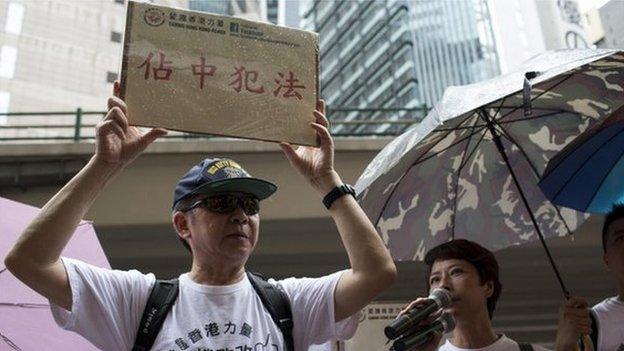Have Hong Kong's youth lost hope in the future?
- Published
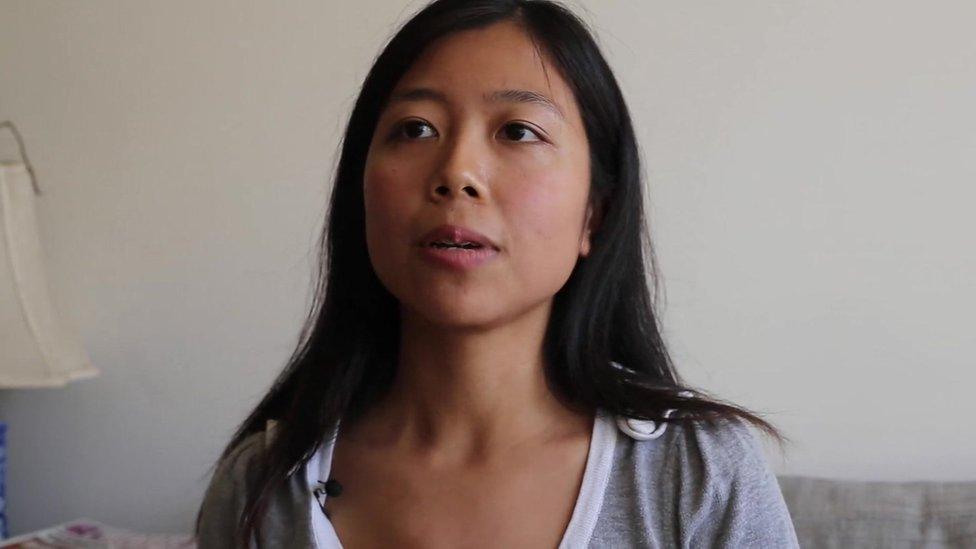
"Our core values are being eroded" says Jennifer
"The Hong Kong we know isn't dying. It's already dead."
That's the assessment of Jennifer, 29.
She came from a modest family background, but studied hard and graduated with a degree from one of Hong Kong's most prestigious universities.
She says she studied politics because she wanted to contribute to society - but no longer believes the territory has a future.
Jennifer is just one of Hong Kong's many talented, and unhappy, young people.
How do Hong Kong's youth feel about the future?
Recent surveys paint a depressing picture. According to one study, external, Hong Kong's young people are the unhappiest they have been in a decade - and the least likely, of all age groups, to agree with the statement "life is really worth living".
Other, external surveys find that 60% of those aged 18-29 want to emigrate, external, and 80% are unhappy, external with the political situation.
If Hong Kong's youth appear particularly unhappy, it might be because of the territory's unusual situation. It's technically one of the richest territories in Asia, but also has one of the worst wealth gaps.
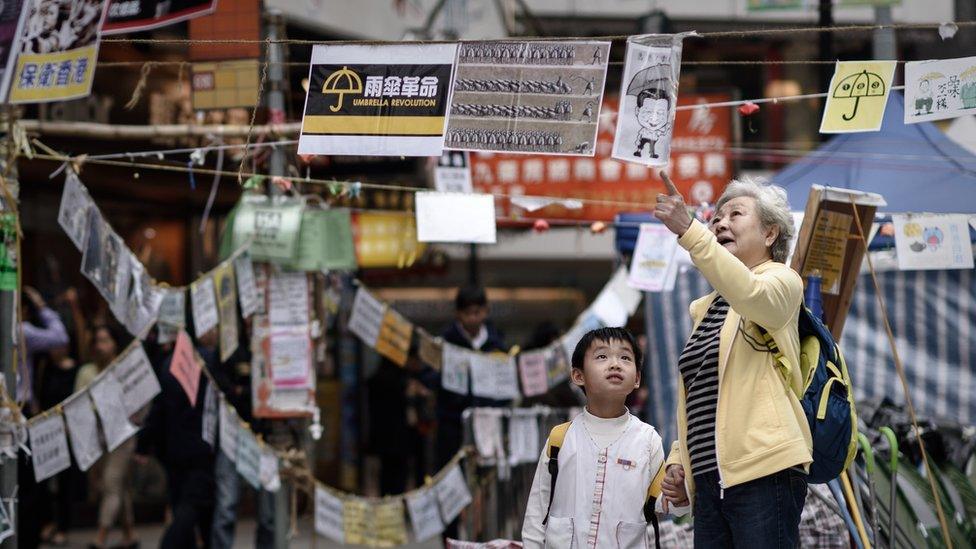
Many - young and old - have concerns about Hong Kong's future
And Hong Kongers enjoy free speech and a free press, but don't have the right to democratic elections - meaning they can readily discuss what makes them unhappy, but have limited political means to change things.
"The atmosphere of society doesn't really lend itself to a future for young people," says Gary Wong, a lecturer in sociology at the University of Hong Kong.
"They might feel that universal suffrage is not going to happen, and they don't know what will happen after 2047 - including in their own careers, and whether they can afford housing."
Hong Kong often ranks, external as having the least affordable housing in the world - and this "affects young people's family planning, and their choice of future careers," Dr Wong says.
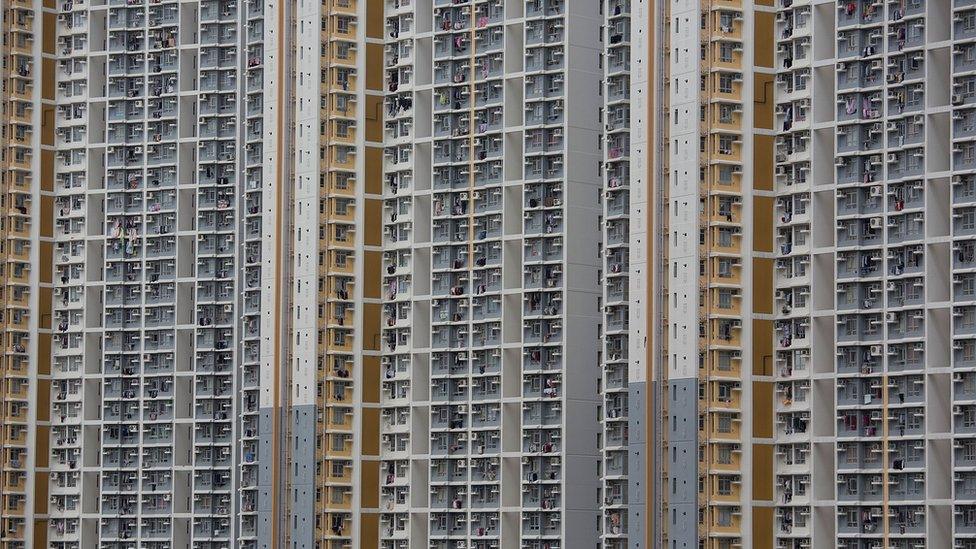
Hong Kong is one of the most densely populated territories in the world
Jennifer grew up in a public estate with her parents and brother - but says after her brother got married, the small two-bedroom flat became extremely cramped.
"For almost a year, I had to sleep on a sofa in the living room."
Not having a room meant she struggled to sleep properly after a long day at work, especially after her brother and his wife had their first baby.
And while many older generations like to argue that hard work is rewarded with success, many young people feel that is no longer true.
"We work hard, but there's nothing," Jennifer says.
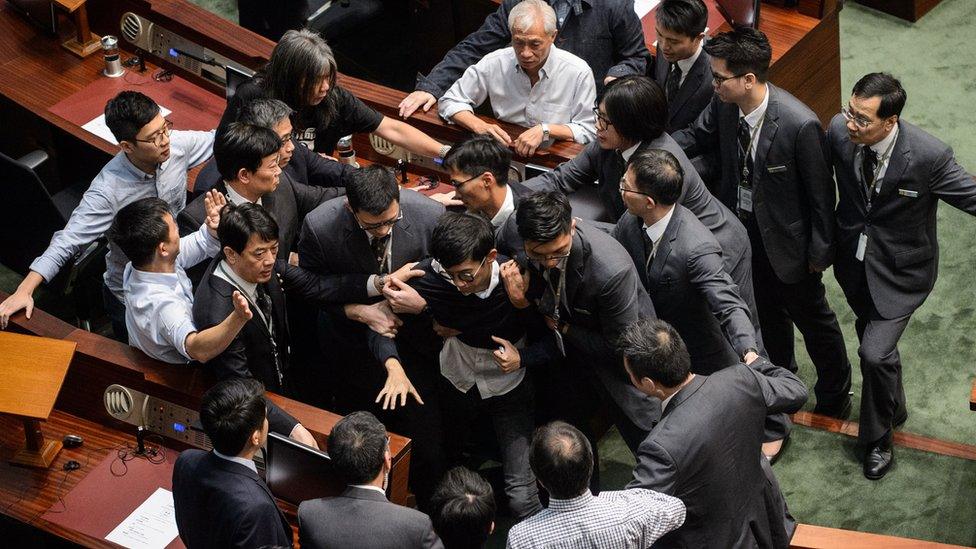
Experts say some young people have lost faith in local politics
Jennifer and her fiance now plan to emigrate from Hong Kong - due to political concerns as well as the high cost of living.
"Back in 1997 [when Hong Kong was handed back to China], we thought Hong Kong could influence China. But now, what we see is China influencing Hong Kong."
She describes Beijing's recent decision to issue an interpretation of Hong Kong's mini-constitution, to disqualify two pro-independence legislators, as "a huge blow" that makes her doubt the rule of law.
'Impossible to run'
Even some who would call themselves politically apathetic were worried by the move.
Lily, a 20-year-old science student, normally "doesn't care about politics much".
But Beijing's interpretation left her thinking: "In the future, will they forcefully push through other laws?"
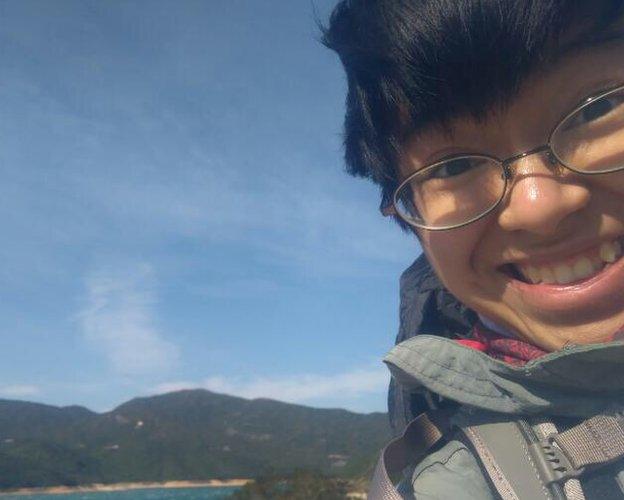
Will we lose freedom of speech, freedom of thought? That's quite painful, says Lily
"I found it quite horrifying when the legislators were disqualified - because they were democratically elected. It seems like Hong Kong citizens don't have a choice after all."
Dr Wong thinks recent events have also dented young people's faith in politics as a way to channel their opinions.
"This makes young people angry and frustrated", and the lack of trust could make it "rather impossible for government to run", he says.
Recent years have seen a rise in youth-led protests - from the mass pro-democracy sit-ins in 2014 to protests resulting in clashes with police.
'A free place'
Although many surveys paint a pessimistic picture, it's important to view them in context. Hong Kongers are often dissatisfied with how things are run - even when the territory does extremely well in some global league tables, such as education and healthcare, external.
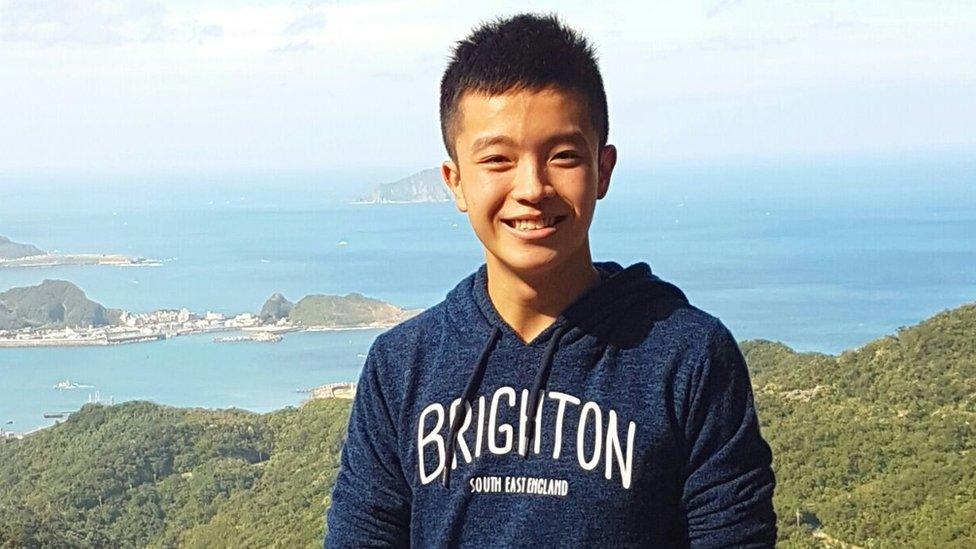
"Compared to other places, Hong Kong is quite free" says Vincent
Vincent, 18, was born in and grew up in Hong Kong. His parents had fled Vietnam, and were granted asylum in the territory. He is now studying in one of Hong Kong's top universities.
"Compared to other places, Hong Kong is quite a free place," he says. "As long as you're willing to work, you'll have a job and basic living standards."
The downside, he says, is that "social mobility isn't very high".
Vincent feels that, "economically and politically, Hong Kong does need to co-operate with China".
But, like many of his peers, he is also worried about what changes will happen after 2047, when the arrangement that gives Hong Kong special rights and freedoms is set to end.
"Some law students at university think - if Hong Kong's law is different by then, what's the point [of them studying]?"
"And if our education system merges with mainland China's, there'll be even more competition."
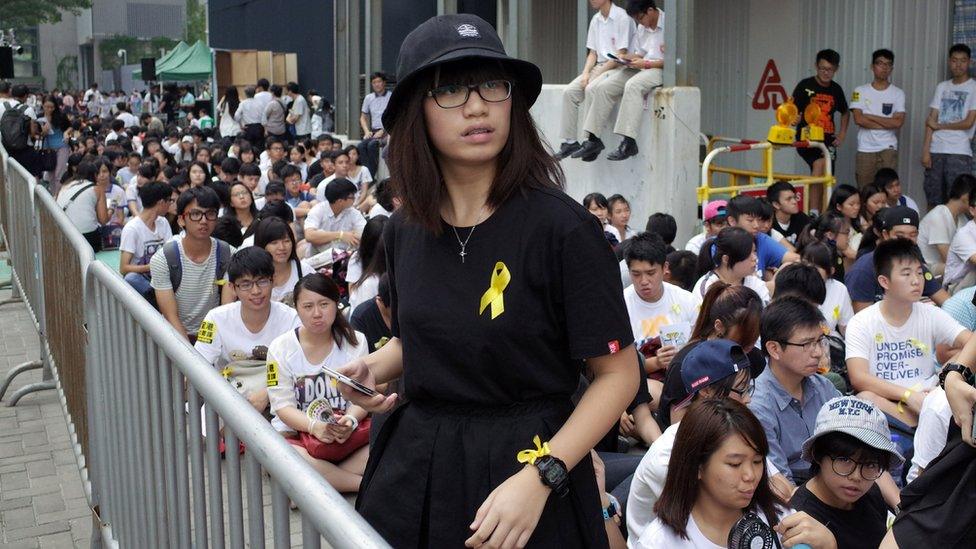
Young people have been at the forefront of many protests
Many people agree that Hong Kong has serious political and social challenges - but there is little agreement on solutions.
The government has pledged to build more affordable housing - but demand far outstrips supply.
When it comes to politics, some groups advocate more dialogue with Beijing, or compulsory Chinese history lessons to improve understanding of the mainland.
But many young people are disillusioned with traditional politics, and view these moves with suspicion. Some even support the idea of Hong Kong's independence from China.
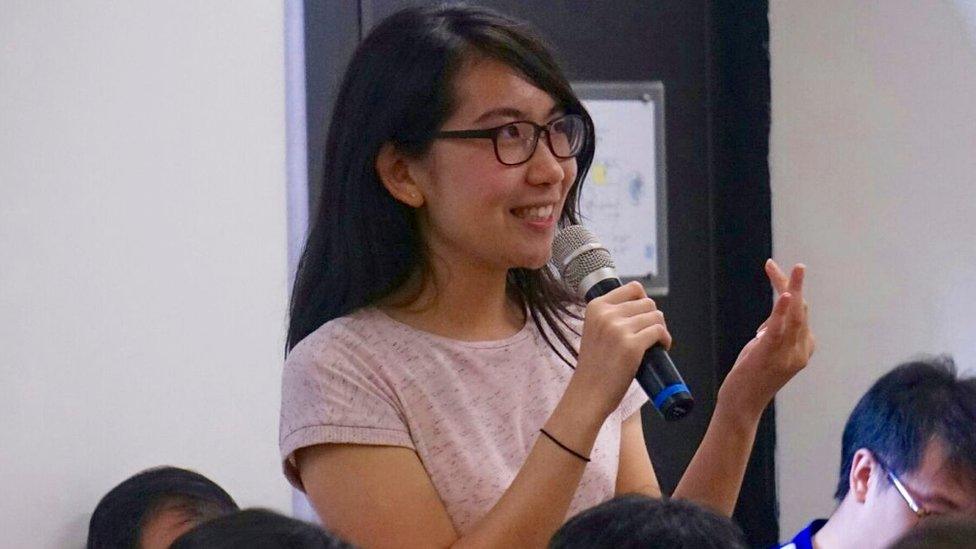
"If society is tolerant of young people, there's still hope" says Karen
Karen, a 24 year-old NGO-worker, argues that "people are getting more extreme and intolerant of others' views".
Karen is part of a group campaigning for democracy, and argues that, with the 2047 deadline edging closer, people need to be pragmatic.
"If everyone sticks to their own ideals, nothing is going to change." But she stresses the importance of listening to Hong Kong's youth.
"If society is more tolerant of young people, then I think there's still hope."
- Published11 December 2016
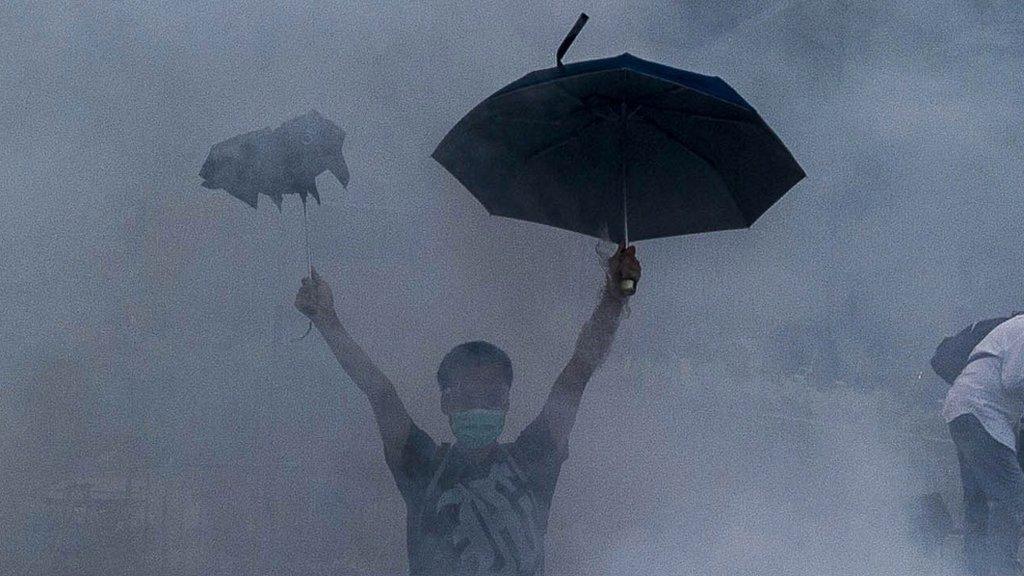
- Published29 November 2016
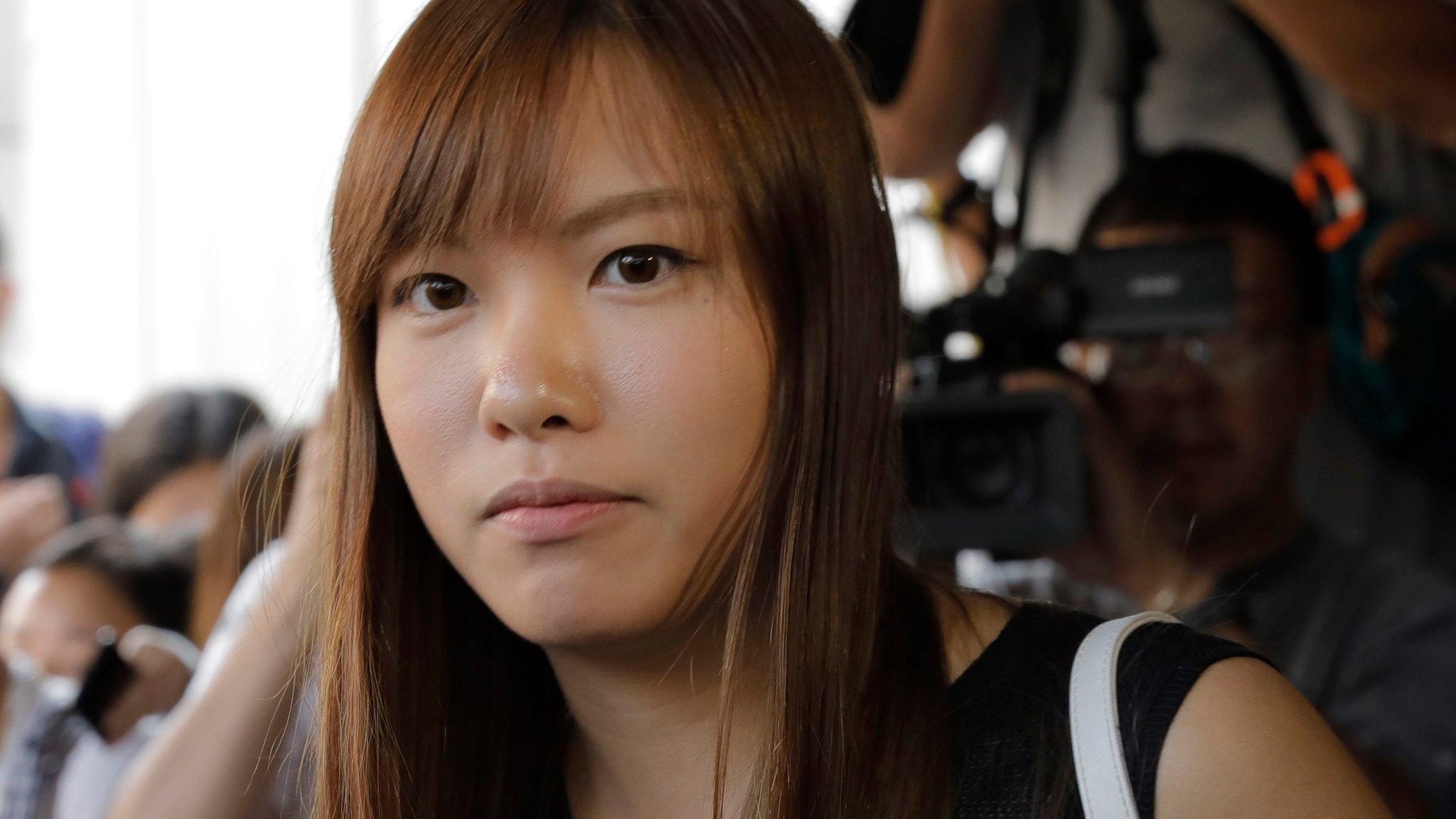
- Published18 June 2015
